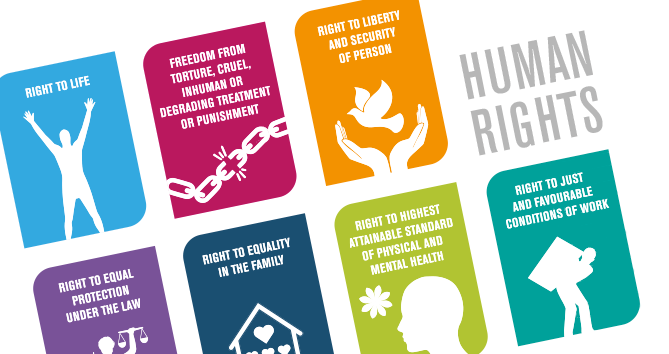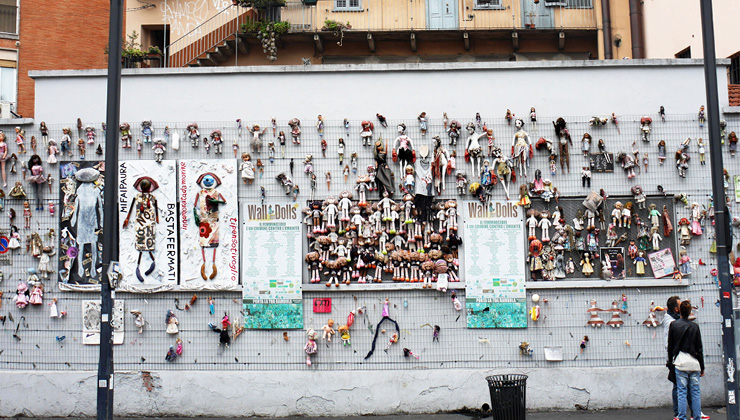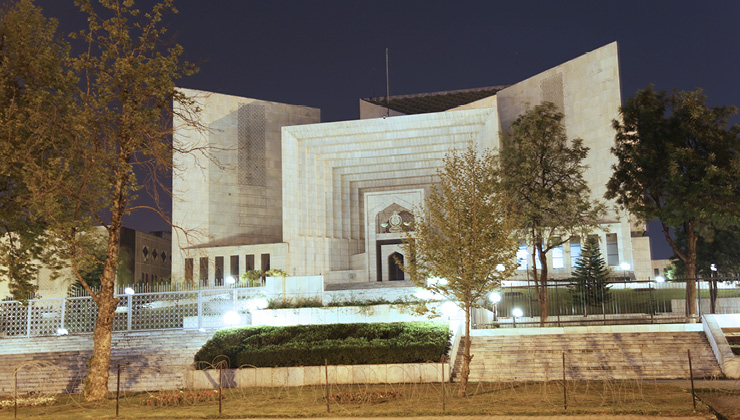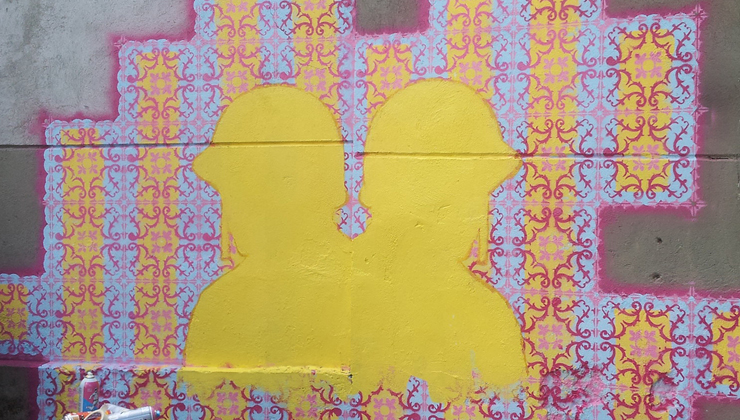On International Women’s Day, and in the context of new movements and campaigns to end sexist abuse and discrimination, Lisa Gormley reminds us that the law is already on side – that gender equality is a legal right.
Feminism is the word of our times. Feminists have worked with international human rights law since the 1990s, as one tool among many to advocate for gender equality, however, there has been no time when the rights of women and girls have dominated headlines in the same manner or extent as they have done so over the last 12 months. Violations of women’s human rights are being exposed, scrutinised and condemned on a daily basis by the media and public alike. In the UK alone the issues covered are wide-ranging: the decision to release a serial rapist from prison; complaints about the gender pay gap in a national supermarket chain and in the national, publicly-funded broadcasting corporation; sexual assault and harassment of women packaged as entertainment for a charity fundraising event; sexual violence and harassment in the film industry, sporting world, the charitable and humanitarian sector and in the very establishments charged with law-making; the list goes on. What is striking is that gender-based violence, harassment and discrimination that have been raised by women’s rights advocates for years are now being recognized as scandalous and wrong in public discourse. In a large part this is because of social media. The ability to speak publicly about individual experiences, to reflect on the causes and consequences of those experiences, to research and share experiences, to organize and to advocate for change – all are in the hands of many, not restricted by powerful gatekeepers.
Liz Kelly said: “Feminism is like a tapestry; every woman brings her own thread.” Women and girls are weaving and stitching this tapestry at a huge rate – making conversations and change happen across the internet, in political action and individual conversations.
As an international lawyer specialising in human rights, I would like to add my thread to the tapestry – a thread which spells out the words “We are legally entitled to equality already.”
The United Nations Charter, modern international law’s founding treaty, identifies the role of the UN to “promote universal respect for, and observance of, human rights and fundamental freedoms for all without distinction as to race, sex, language or religion” (article 55). The Charter requires States to cooperate to achieve the implementation in practice of universal human rights, including equality between men and women. The detail of what counts as “universal human rights” is set out in the Universal Declaration on Human Rights, and all the human rights treaties that come afterwards.

What does using international human rights law mean for our advocacy for gender equality? It means that we can make our demands from a position of legal entitlement and rule of law. Women and girls are not asking for favours or ‘special’ treatment but for their rights – and failure to accept this is simply a further instance of patriarchy denying our legal entitlement. The justice we seek is not just our conception of justice, and definitely not a form of wishful thinking, it is our legal entitlement. Of particular relevance is the Convention on the Elimination of All Forms of Discrimination against Women – CEDAW. This is a short treaty – its substance is set out in 16 substantive articles recognising in detail women’s right to equality in all spheres of life, including equality in political participation, in the family and community, in work, education, and health, among others. Over time the content and meaning of its provisions have been clarified through the monitoring processes and individual cases brought to the CEDAW Committee.
Women’s human rights law now covers a vast area of detail, but even looking at the basic foundational texts of CEDAW we see that equality between men and women in the right to work means, not just access to equal pay but equality of treatment in the evaluation of the quality of work the right to equality of opportunities and the same social security and pension (see Article 11 (b),(d) & (e)). Obviously, the right to work for women means that discrimination on the grounds of pregnancy or maternity should not be permitted; this includes the right not to be dismissed or sanctioned for pregnancy or for marital status but also that women are given same pay and benefits on return from maternity leave (see Article 11(2) & 11 (2)(b)). CEDAW also requires States to encourage the provision of work/life balance for both parents (Article 12(2)(c)).
As well as these specific provisions, there’s a back-stop article – Article 3 of CEDAW – requiring States to take all appropriate measures to ensure “the full development and advancement of women, for the purpose of guaranteeing them the exercise and enjoyment of human rights and fundamental freedoms on a basis of equality with men.”
And this is just CEDAW. Since the 1990s, feminist human rights defenders, lawyers, scholars and activists have brought understanding of women’s and girls’ experiences to other human rights treaties, notably so that violence against women can be recognized as a form of torture or ill-treatment. These are clear– and legally binding – commitments on States.
From global to local
The international legal system contains a commitment to gender equality, but women and girls who have faced violence first seek help through their local, national, legal systems. So the #TimesUp initiative, funding and supporting women’s legal claims, is absolutely necessary. But there is potential for that justice-seeking to lead to secondary victimisation, through the criminal justice process which portray women as liars, or blame them for the crimes committed against them. International human rights law indicates comprehensive and practical solutions to ensure fair trials and due process both for victims of crimes and those accused of crimes. Procedures in international criminal law – notably, the tribunals for former Yugoslavia and Rwanda, and the International Criminal Court – were developed with the survivors of conflict-related sexual violence in mind, so that these victims and witnesses could give their testimony in safety and dignity: for example, to exclude questions and comments on the previous sexual history of the victim from the courtroom, and to provide effective victim and witness protection. These initiatives became part of human rights standards relevant to the investigation and prosecution all crimes of violence against women, whether those crimes take place during conflict, post-conflict or peacetime.
States also are obliged to put in place a dynamic and adequately resourced plan to ensure gender equality in all spheres of life. Again, international human rights law contains the starting point for solutions, including education of children and young people for equality, as is set out in CEDAW. Education has to include comprehensive sexuality education – UN guidelines indicate how this can be designed so that young people are equipped to make informed decisions about their sexual lives in ways that protect their health and well-being.
We may be in a time of true and durable social change: those who are concerned about violence and discrimination against women and girls need to insist and persist in holding governments to account for their existing obligations – we can start preparing now for the CEDAW Committee’s review of the UK government’s compliance with CEDAW, which will take place in February 2019. We’re entitled to gender equality already.
The views, thoughts and opinions expressed in this blog post are those of the author(s) only, and do not reflect LSE’s or those of the LSE Centre for Women, Peace and Security.





